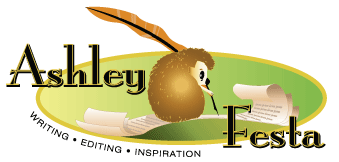This Four-Letter Word Will Help You Tell Better Stories

Photo by Stephanie Keeney via Flickr
This is a G-rated post, I promise.
We’ll get to the word in a minute—first, let’s talk about why you desperately need it.
If you’re in the business of writing, you need stories to tell. Whether you write feature articles, customer case studies or executive bios, you need a story to keep readers engaged.
For writers, that’s common sense. For anyone who’s ever read anything, you know it’s true.
But stories aren’t always easy to find, even for professionals who are trained to find them. I’ve been writing feature articles for more than 10 years, and I’ve conducted hundreds of interviews. Some of them are easy—these people are comfortable talking your ear off. I don’t have to hunt for the story. They just tell me. Others, well, other people just don’t know how to tell their most interesting stories easily.
So what does that mean for the writer?
It means we have to ask the right questions to get people to open up. We have to ferret out the remarkable, relatable and shareable tidbits that are worth reading. Whether it’s easy or it’s like pulling teeth, it’s a writer’s job to get people to tell us the real reason the story is worth anyone’s time.
The Best Question to Ask
Before you even begin your interview, nix questions that start with “Do you…?” Don’t allow someone to answer you with a yes or no. Any question that can be answered with one word is a dead end. The only reason a question should begin with “Do you…?” is if you need confirmation of a fact you already know.
The only reason a question should begin with “Do you…?” is if you need confirmation of a fact you already know.
Instead, ask open-ended questions. Get the person talking. Make them explain, describe and reveal. Not only do open-ended questions draw out lots of information, these questions will also guide the interviewee to the next part of the story.
So what’s that four-letter word that draws out the best stories?
“When…?”
“When” questions prompt people to recount situations and reasons and realizations—the foundation of stories.
Take these, for example:
- When did you know you wanted to…?
- Tell me about a time when….
- When did you realize you needed to…?
These types of questions help people talk about what they know best. They were there. They did it. They remember it. They’re comfortable with that story. And they’ll tell you about it, if only you’ll ask.
Now, imagine some of the answers you’ll get:
- “Well, last year, it happened when…”
- “When I was only 7 years old…”
- “I knew I had to change my idea when…”
See how people begin to tell you the heart of the story if you ask “when” questions?
Then, when you have the framework for your story, follow up with “How did you…?” or “What prompted you to…?” or “Why do you…?” With these, you’ll fill in the details behind the “when” to create the complete story.
I guarantee you’ll have a successful interview, even with someone who’s nervous or shy, if you incorporate “when…” in your lineup of questions.
Writers, what’s your favorite question to ask during an interview?





